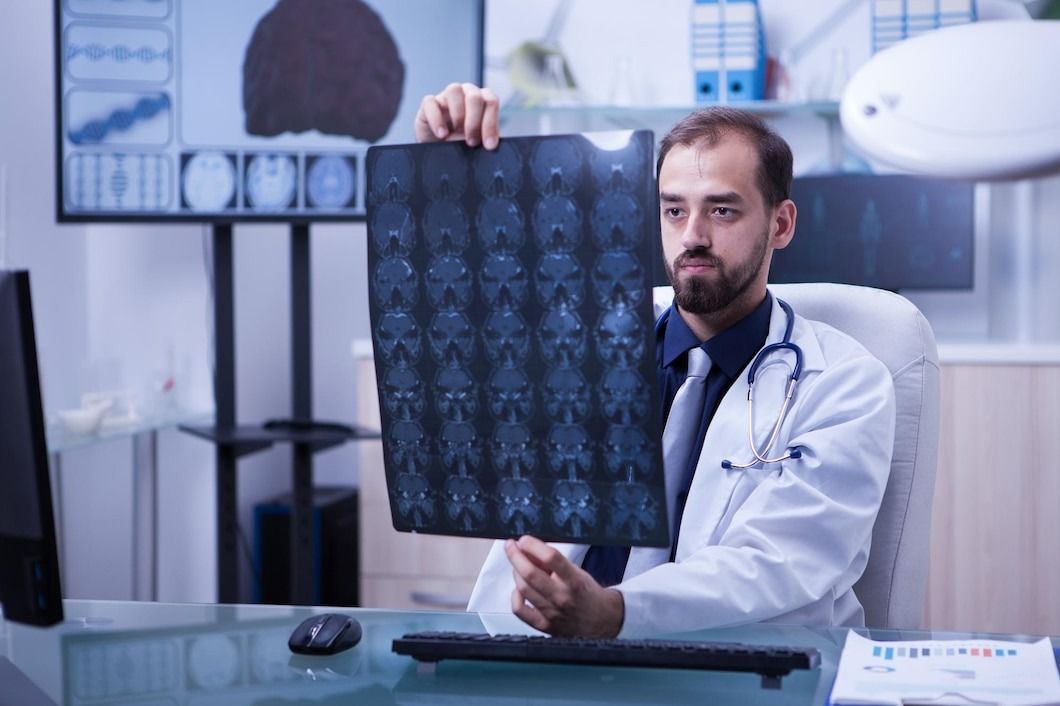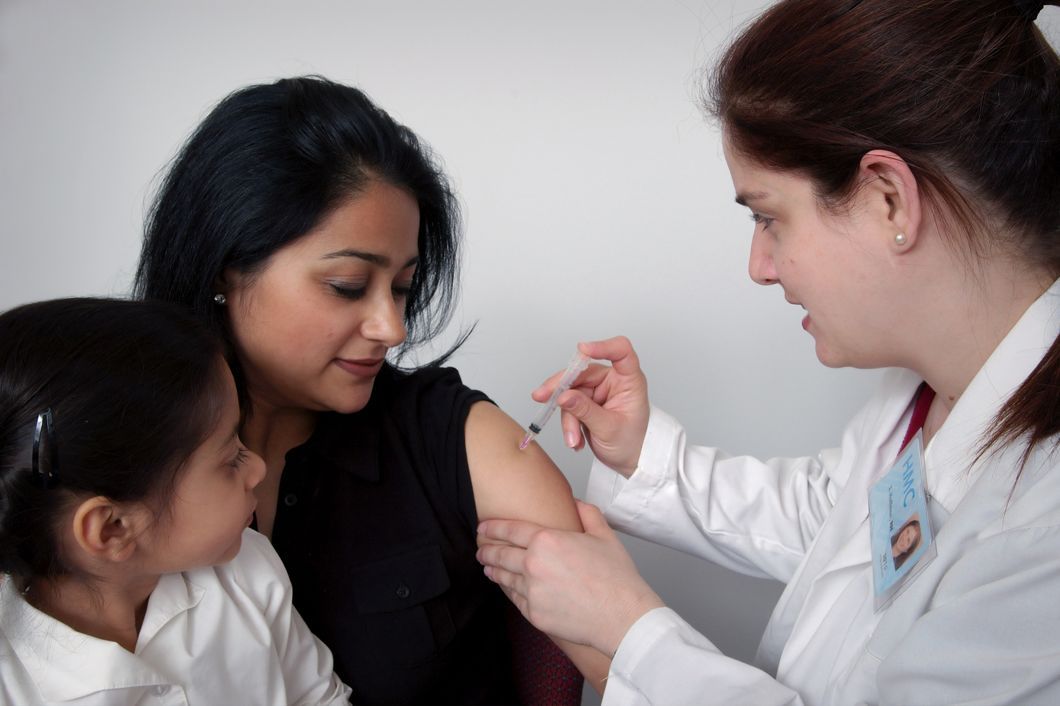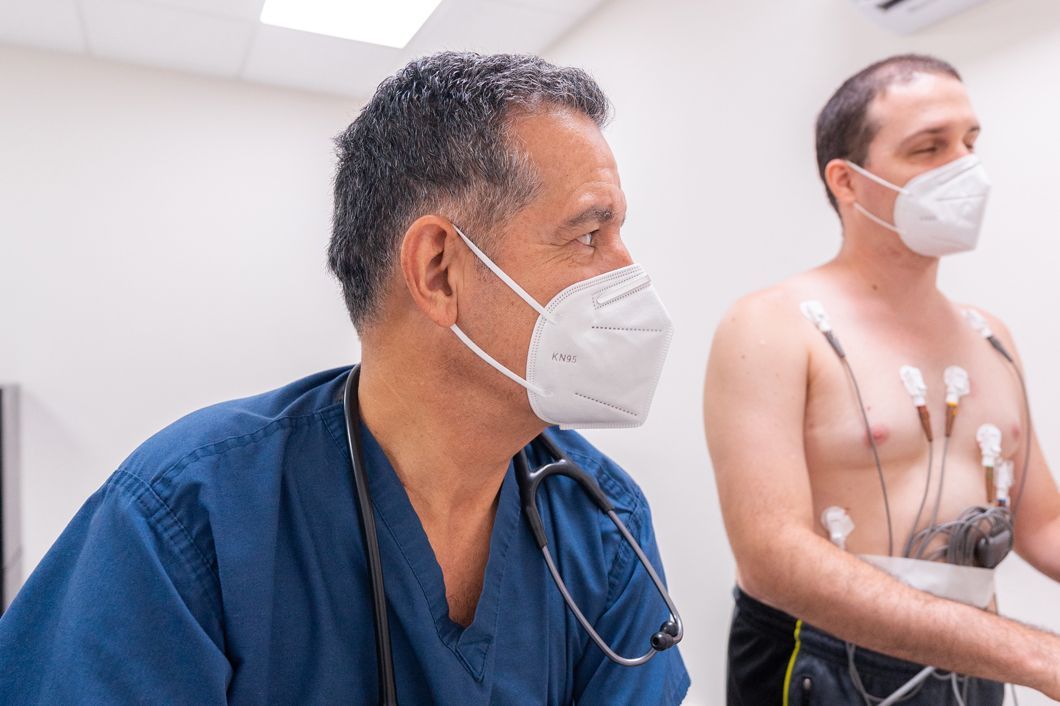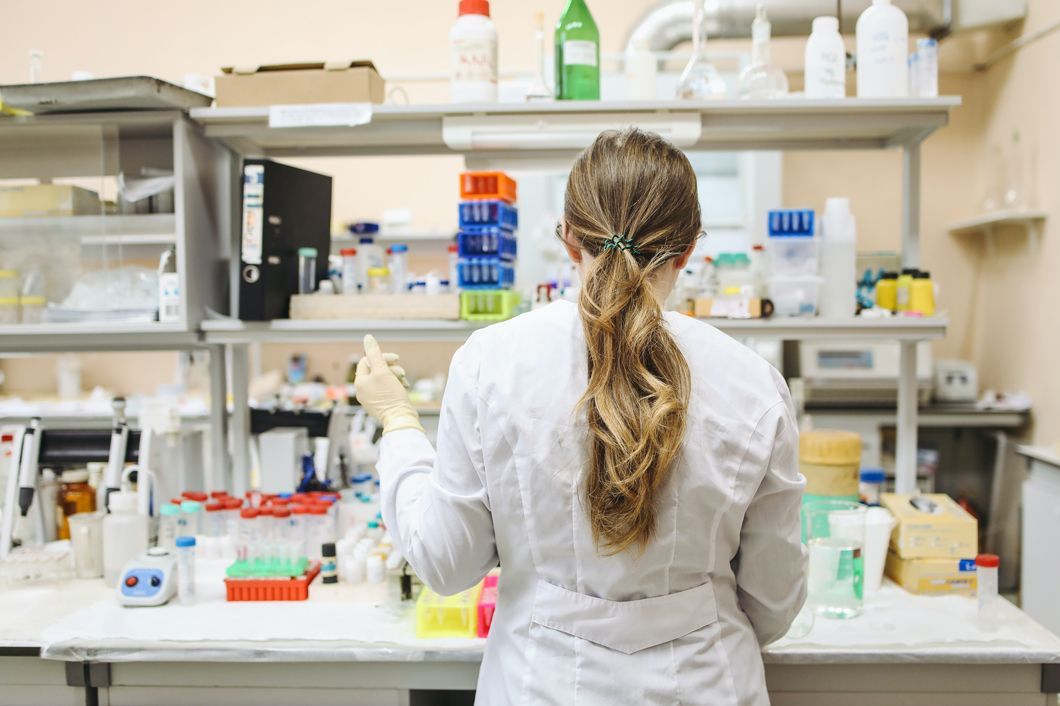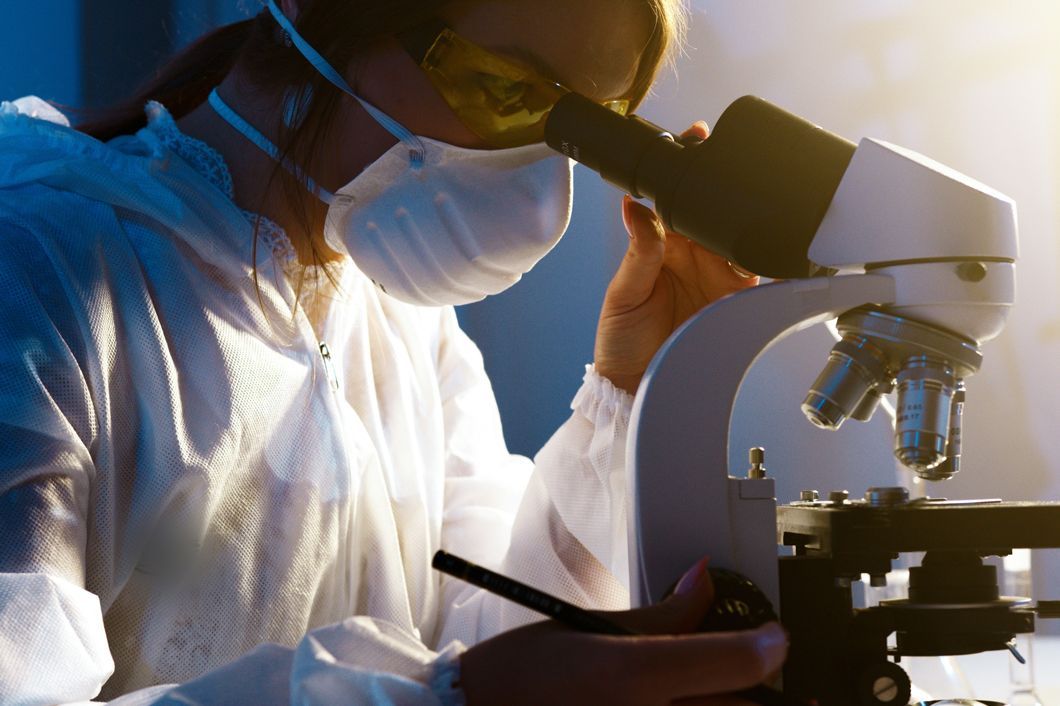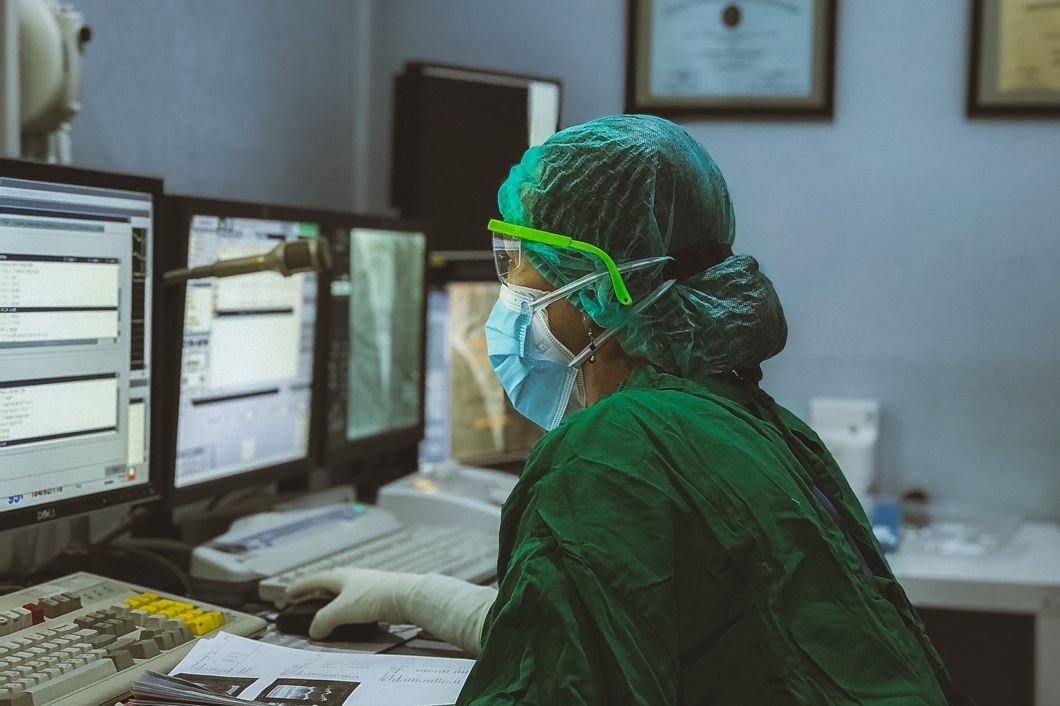Healthcare Resources
Explore healthcare careers through the videos below. Learn more at It Happens In A Hospital.
Registered Nurse
Licensed Practical Nurse
Surgical Technician
Radiologic Technologist
Respiratory therapist
Phlebotomist
Medical Laboratory Technician
Check out more in-demand healthcare careers below
Registered Nurse
Profile: Registered nurses (RNs) provide and coordinate patient care, assess patient health, develop and implement nursing care plans, administer nursing care to ill, injured, convalescent, or disabled patients, administer drugs; educate about various health conditions and disease prevention, provide case management, and maintain medical records.
Outlook: Very Rapid Growth. Registered nurses are expected to be in high demand through at least 2030.
Radiologic Technologist
Profile: Radiologic Technologists perform diagnostic imaging procedures, such as X-rays, magnetic resonance imaging (MRI) scans and computed tomography (CT) scans and administer nonradioactive materials into the patient's blood stream for diagnostic purposes. Further specialization in specific techniques such as cardiovascular-interventional radiography, mammography or sonography is possible. They work closely with radiologists.
Nurse Practitioner
Profile: Nurse Practitioners are advanced practice registered nurses who generally provide care independently, or as part of a healthcare team, to patients from newborns to the elderly. They often specialize in family care, women’s health, pediatrics, or geriatric care. As clinicians, they diagnose and treat patients, as well as educate about disease prevention and help patients manage their health. Nurse practitioners perform physical examinations, diagnose and treat common illnesses and injuries, manage chronic health issues, and order and interpret diagnostic and laboratory tests.
Healthcare Social Worker
Profile: Healthcare Social Workers provide individuals, families, and groups with the support needed to cope with illnesses. Services include organizing support groups, counseling and advising individuals and family members, connecting individuals and family members with community resources, overseeing programs that combat social problems, prevent substance abuse, or improve community health. Social workers work in a variety of settings, including mental health clinics, schools, child welfare and human service agencies, hospitals, settlement houses, community development corporations, and private practices.
Licensed Practical Nurse
Profile: Licensed practical nurses care for the sick, injured, convalescent and disabled in a variety of health care settings such as hospitals, nursing homes, clinics, private homes, group homes, and similar institutions. They provide hands-on, bedside care to patients, often under the supervision of registered nurses (RNs) or physicians. LPN’s take vital signs such as temperature, blood pressure, pulse, and respiration. They can also treat bedsores, prepare and give injections and enemas, apply wound dressing, give alcohol rubs and massages, apply ice packs and hot water bottles, and monitor catheters.
Cardiovascular Technician
Profile: Cardiovascular technicians assist physicians in diagnosing and treating cardiac (heart) and peripheral vascular (blood vessel) ailments. They conduct tests on pulmonary or cardiovascular patients for diagnostic, therapeutic, or research purposes. They often conduct or assist in electrocardiograms, cardiac catheterizations, pulmonary functions, lung capacity, and similar tests.
Pharmacy Technician
Profile: Pharmacy Technicians help pharmacists dispense prescription medication to customers or health professionals. They work under the direct supervision of a licensed pharmacist in drug, general merchandise, and grocery stores, and in hospitals. The responsibilities at a retail location differ from those at a hospital. In the hospital, a technician might prepare I.V. and critical care medications, while technicians at retail locations might manage inventory, process prescriptions, and bill insurance companies.
Medical and Clinical Laboratory Technicians
Profile: Medical and Clinical Laboratory Technicians are highly skilled scientists who discover the presence or absence of disease and provide data that help physicians determine the best treatment for the patient. They collect samples and perform tests to analyze body fluids, tissue, and other substances and play a crucial role in the process of providing personalized care. They operate complex electronic equipment, computers, and precision instruments. They generate vitally important data for identifying and treating cancer, heart disease, diabetes, and many other health conditions.
Dental Hygienist
Profile: Dental Hygienists examine patients for signs of oral diseases and provide preventive care, such as removal of plaque, calculus, and stains from the teeth. Dental Hygienists also expose and process dental X-rays; apply cavity-preventive agents, such as fluorides; and record patient medical histories.
Respiratory Therapist
Profile: Respiratory Therapists assess, treat, and care for patients with breathing disorders, including those who suffer from chronic respiratory diseases like asthma, bronchitis and emphysema. They also treat people who have had heart attacks, people with sleep disorders, and infants who are born prematurely. Respiratory Therapists often provide emergency care to patients suffering from heart attacks, drowning or shock. Other duties include supervising respiratory therapy technicians, maintaining patient records; and selecting, assembling, checking, and deploying respiratory equipment.
Physician Assistant
Physician Assistants are medical providers who are licensed, under supervision by a licensed physician, to diagnose and treat common illness and disease and to prescribe medication for patients. PA’s practice on teams with physicians, surgeons, and other healthcare workers. They typically work in physician offices, hospitals, and clinics. Their specific duties and the extent to which they must be supervised by physicians or surgeons differ from state to state.
Occupational Therapist
Occupational Therapists assist patients limited by disabilities or developmental delays with rehabilitative programs designed to restore vocational, homemaking, or daily living skills. They seek to maximize independence through a planned mix of acquired skills, motivation, environmental adaptations, and assistive technologies. Occupational Therapists help people of all ages engage in their work and succeed at the activities of daily living like getting dressed, cooking, eating, and driving.
Radiation Therapist
Radiation Therapists administer prescribed doses of radiation to specific body parts, using radiation therapy equipment as prescribed by an oncologist. Duties may include reviewing prescription and diagnosis; managing patients undergoing radiation therapy; acting as a liaison with physicians and supportive care personnel; preparing equipment and maintaining medical records. Most treatment sessions are conducted independently, in accordance with a long-term treatment plan and under the general direction of the patient's physician.
Medical Records and Health Information Technician
Medical Records and Health Information Technicians typically compile, process, and maintain medical records and clinical databases for hospitals and clinics, perform manipulations on retrieved data, control the security and quality of records in both paper files and electronic systems, and supervise data entry and technical maintenance personnel. They use various classification systems to code and categorize patient information for insurance reimbursement purposes, for databases and registries, and to maintain patients’ medical and treatment histories.
Speech-Language Pathologist
Speech-Language Pathologists evaluate the speaking, language interpretation, and related physiological and cognitive capabilities of children and adults and develop individualized treatment and rehabilitative solutions. They also counsel individuals and families on how to cope with communication and swallowing disorders. Speech, language, and swallowing disorders result from a variety of causes, such as a stroke, brain injury, hearing loss, developmental delay, Parkinson’s disease, a cleft palate, or autism.


